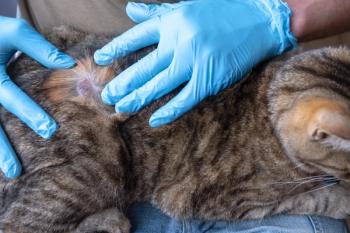
2009 Triennial Report: Generational differences
True or false? The needs of the patient come before the interests of clients.
NATIONAL REPORT — True or false? The needs of the patient come before the interests of clients.
Interestingly enough, your answer might depend on your age.
Most veterinarians under 40 believe the patient's needs come first, according to a new DVM Newsmagazine survey. Not so for those vets in their 50s or 60s. For them, clients call the shots, literally.
This generational difference undoubtedly poses many interesting questions when it comes to providing care, ending care or just giving it away, especially considering that the checkbook is attached to the other end of the leash.
The latest DVM Newsmagazine survey was created to identify some of the philosophical differences that exist between generations of veterinarians. There are many.
To make it easy, we have created a generational index (p. 26) that covers a range of topics from loyalty to work ethic.
Major differences are noted in responses to questions about pet insurance, rating of clinical abilities and technological aptitude.
For example, consider the topic of loyalty: A whopping 85 percent of respondents consider veterinarians between 45 and 62 as loyal. In contrast, 64 percent question the loyalty of the 28-and-under age group.
We wanted to test the question about loyalty further, so we asked how much money it would take for a veterinarian to dump his or her current employer?
Of those under 30, a third said they are happy where they are. Another third said it would take more than $9,000 (or 15 percent, with a mean salary of $60,555) for them to leave.
The survey also asked: "When it comes to salary, how much money is adequate, based on your lifestyle?" The average was $72,000 for this age group, which is $11,500 more than their reported salaries.
What about the Baby Boomers? If you are a veterinarian over 62, your mantra might be "if it isn't broken, don't fix it." That's what 91.7 percent of respondents said. But 90 percent of DVMs between 29 and 44 are "eager to implement new ideas."
Attitudes about pet insurance delve even deeper into this generational divide. DVM Newsmagazine asked veterinarians if they would like to see wider use of pet-health insurance. The results show decisive differences about the acceptance and/or need for a third-party payment system.
Nearly 60 percent of veterinarians surveyed believe their boss is a good mentor. One-quarter said he/she could be better, and 11 percent flat-out fired their mentors.
The ideal traits of a good mentor, according to survey respondents, are that they share information (26 percent), make you feel like part of the team (25 percent), teach (25 percent) and make sound, logical decisions (23 percent).
Generational index
A vet is a vet
Despite the differences, there were just as many similarities. Ninety-four percent of veterinarians say they entered this field to help patients and clients. Other surveys have told us DVMs are very happy with their career choice.
Most veterinarians, 92 percent, say they look up to past generations. And most vets, regardless of age, say they are loyal to their current practice, despite the attitudes previously noted.
For associates, the majority of promotions are either earned or deserved, according to 67 percent of the respondents. A small number of associates say that promotions too frequently are based on need (11 percent), favoritism (8 percent), mostly political (5 percent).
Likewise, 40 percent of owners say that promotions are based on merit. Other responses include: experience (18 percent), fear of leaving (10 percent), trust (5 percent), tenure (8 percent), need (8 percent) and favored employee (2 percent).
Newsletter
From exam room tips to practice management insights, get trusted veterinary news delivered straight to your inbox—subscribe to dvm360.




